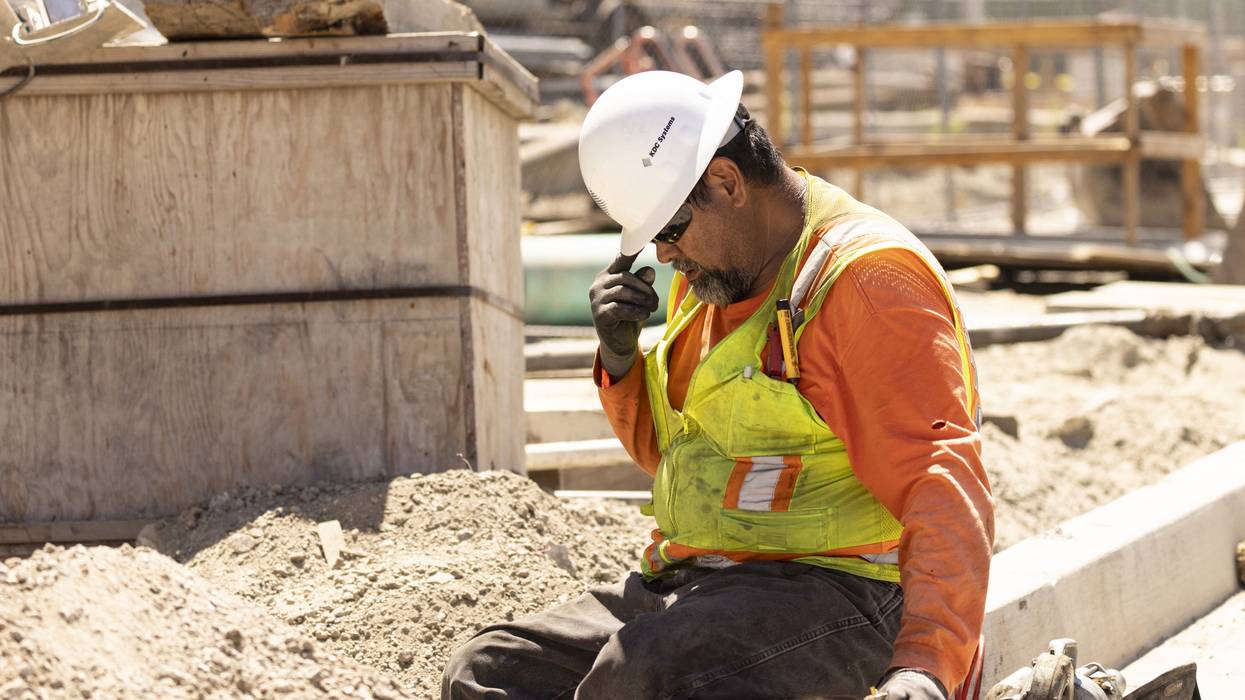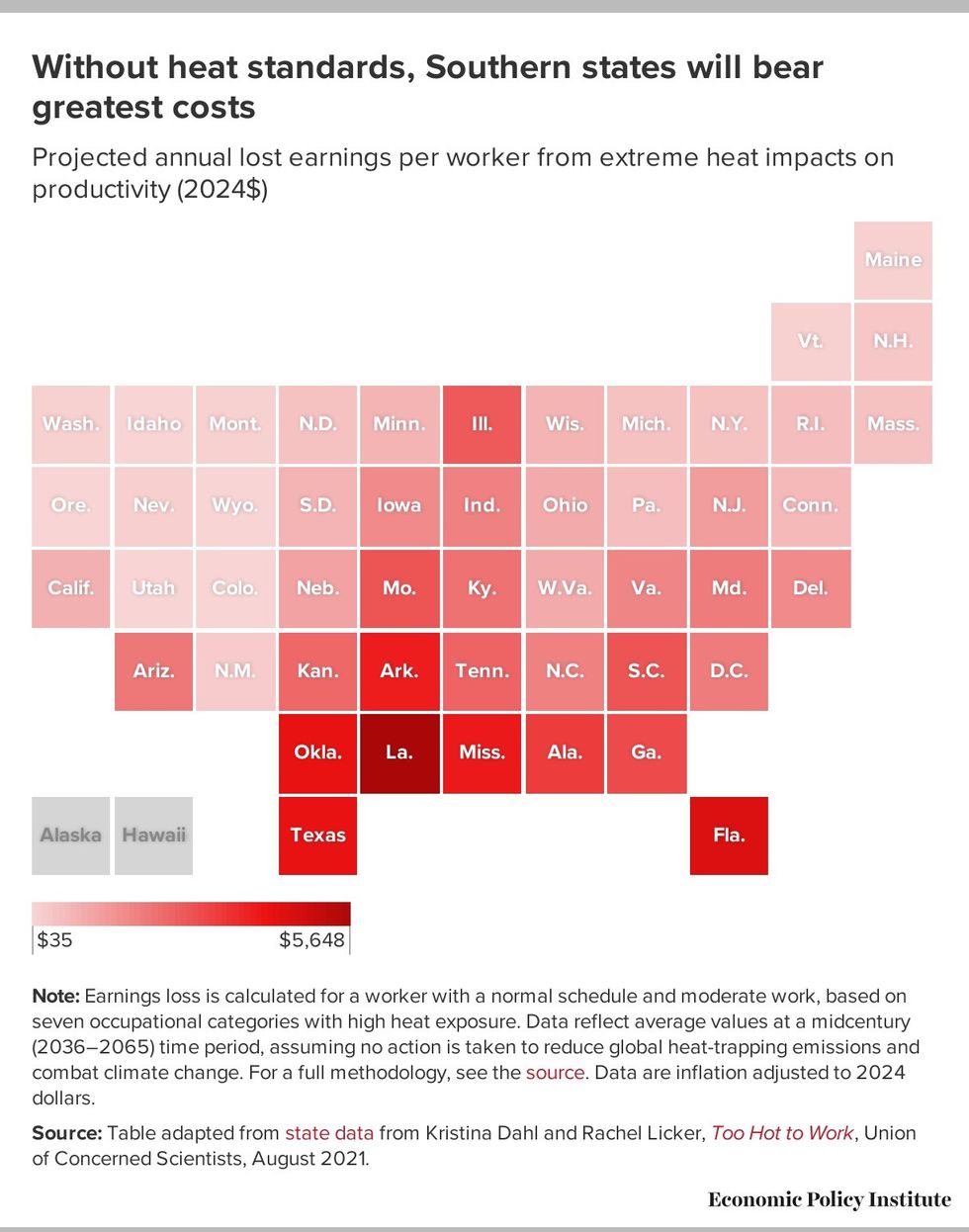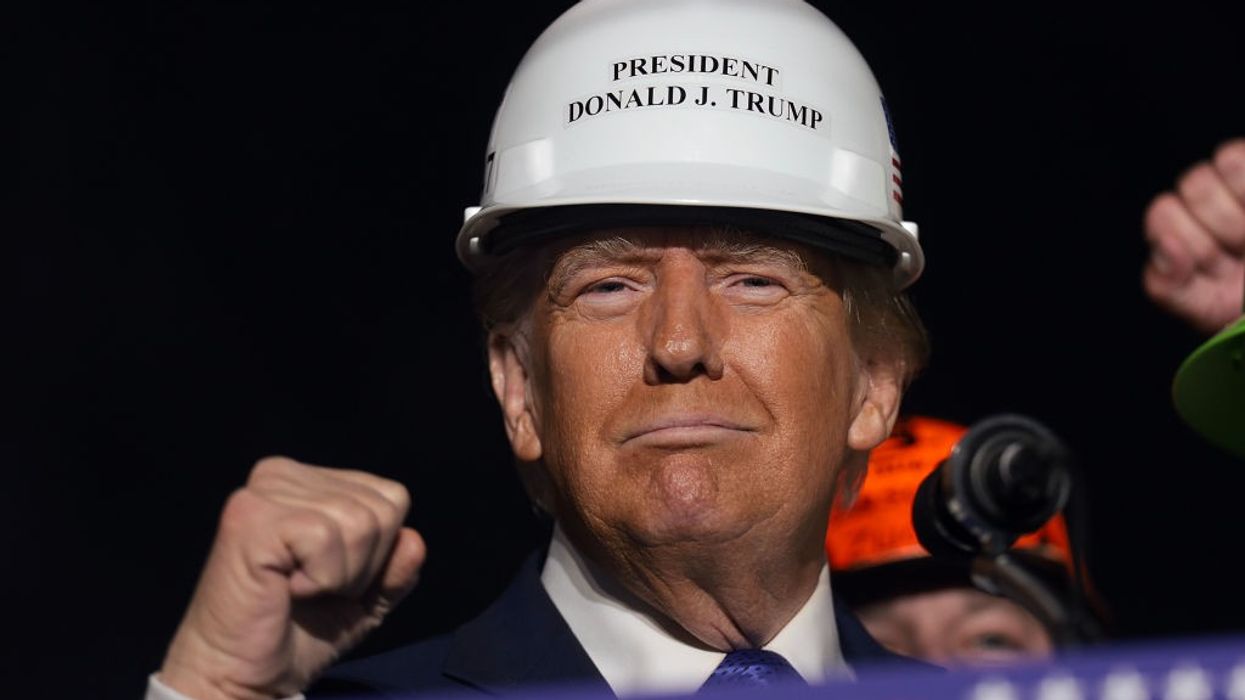This summer, OSHA held informal hearings on the proposal, but whether and in what form the Trump administration might move forward with adopting a final version of the heat standard rule remains uncertain. In the meantime, states have every reason to move forward with enacting their own strong standards to protect workers from preventable heat illness and death on the job.
The Human and Economic Costs of Extreme Heat
Heat is the leading cause of death among all weather-related fatalities, killing 177 people last year alone and at least 211 workers between 2017 and 2022. We know that existing data on heat-related workplace fatalities significantly understate their true incidence and that, as climate change leads to more frequent and intense heatwaves, these numbers will only rise. Despite this, 43 states and DC have yet to take action to prevent heat deaths. With federal rulemaking now in limbo, it is more imperative than ever for states to act quickly to protect workers from the growing danger of heat exposure.
Like workplace deaths and injuries in general—and due to occupational segregation and geographical factors—the impacts of extreme heat are distributed unevenly based on income, race or ethnicity, and immigration status. The lowest-paid 20% of workers suffer five times as many heat-related injuries as the highest-paid 20%. And Black, Hispanic, and immigrant workers face higher exposure to extreme heat because they are more likely to work in high-risk industries like construction and agriculture.
While workplace deaths are the most urgent consequence of extreme heat, heat is also responsible for thousands of illnesses and injuries every year that result in unexpected healthcare costs, missed workdays, lost wages, and productivity declines that cost both workers and their employers. Overall economic costs are staggering: Short-term heat-induced lost labor productivity costs the US approximately $100 billion annually and these costs will only increase as climate change worsens. Without emissions reductions or sufficient heat adaptations, labor productivity losses may double to nearly $200 billion by 2030 and reach $500 billion by 2050.
Federal OSHA estimated that savings to employers are projected to outweigh any implementation costs by $1.4 billion each year.
If no action is taken to mitigate the growing risks of extreme heat exposure, the hottest states will suffer the gravest economic consequences. Researchers at the Union of Concerned Scientists estimated annual earnings at risk for workers in each state across seven of the most heat exposed occupations. Southern states make up 9 of the 10 states where workers stand to lose the highest average annual earnings (see Figure A). Texas will be one of the hardest hit; it’s projected to lose a cumulative $110 billion in labor productivity by 2050.
Despite these economic risks, some Southern states are standing in the way of protecting their own workers and businesses. Texas and Florida—which accounted for almost half of all heat-related severe injuries in the construction industry between 2015 and 2023—have failed to adopt statewide heat standards and banned cities and counties from passing local heat standards.

Even though the economic harms of heat-related injuries, illnesses, and deaths are well documented, new heat standard proposals regularly face significant opposition from industry interests who claim, with little evidence, that protections will be too costly to implement. While exaggerated claims and fearmongering are consistent with a long history of industry resistance each time OSHA has proposed new standards, suggestions that a heat standard would disrupt business aren’t backed by available evidence. In its own regulatory impact analysis of the proposed heat standard, federal OSHA estimated that savings to employers are projected to outweigh any implementation costs by $1.4 billion each year.
Existing Models Provide Roadmap for States to Adopt or Strengthen Their Own Heat Standards
Years of research and experience have produced clear guidelines for evidence-based, effective standards that states can now adopt quickly and with confidence. The strength and effectiveness of existing heat standards varies across states with respect to which workers are covered and what steps employers must take to prevent extreme heat exposure. All state heat standards (except for Nevada’s) set a temperature threshold above which employers are required to provide workers with water and shade. Most states also set a high-heat threshold above which additional precautions must be taken to protect workers. Many states also mandate an acclimatization period for workers to adjust to working in high temperatures, but the length of that period varies across states. All states with heat standards mandate that employers train workers on heat illness prevention, monitor workers for signs of heat illness, and have a plan to respond to heat illness emergencies.
A strong state standard should, at a minimum:
- Cover all indoor and outdoor workers;
- Include temperature thresholds to mandate precautions like water, rest, and shade;
- Guarantee an acclimatization period;
- Designate a high-heat temperature threshold at which additional precautions apply; and
- Impose no new costs on workers, meaning that workers should be paid for rest breaks and time spent acclimatizing.
Seven states have already implemented heat standards: California, Colorado, Maryland, Minnesota, Nevada, Oregon, and Washington. While California, Washington, and Minnesota were early adopters of heat standards, advocates have built tremendous momentum toward the adoption of new standards in additional states in the past two years. In 2024, Colorado, Maryland, and Nevada all passed new heat standard laws and California expanded its existing heat standard (originally covering only outdoor work) to cover indoor workers. This year, 18 state legislatures proposed new heat standards, including bills in states like Illinois and New Jersey, that outline elements of comprehensive, evidence-based standards that other states can use as models.
States with existing standards should review checklists for a strong heat standard as well as model legislation in states like Illinois and New Jersey to audit their regulations and strengthen them if needed. States without standards should build comprehensive, effective standards that follow these evidence-based recommendations, cover as many workers as possible, and include clear, enforceable measures.
States Should Act Now to Limit Harms to Workers, Businesses, and State Economies While Federal Rulemaking Is in Limbo
The fate of the proposed federal heat standard now under consideration could eventually reshape the heat standard policymaking landscape, but in the meantime, there is no downside to states taking action. The current proposed federal standard is fairly strong, a testament to years of research, advocacy, and community mobilization. However, given the Trump administration’s hostility toward workers and industry lobbying groups’ strong opposition to the proposed standard, possible outcomes include the adoption of a weakened standard or long delays in formalizing the proposed rule to effectively block its implementation.
Some industry representatives opposed to the current proposed federal standard have indicated that, instead of continuing to block the federal rule, they may support the passage of a weak standard in order to stave off future rulemaking. Some have speculated that industry interests may support modeling a weak federal standard on Nevada’s months-old, untested state standard, which has no temperature threshold and has been characterized as “almost as bad as no heat standard” by worker advocates.
There are three possible outcomes of the federal heat standard rulemaking process:
- The Trump administration finalizes the proposed, strong federal heat standard. If a strong rule is formalized, states should (and must) adopt it. A strong federal rule protecting all workers from the effects of extreme heat is the best-case scenario. Under this scenario, states where employers and workers have already gained experience with strong state heat standards will be better prepared to implement the federal rule.
- The Trump administration abandons or indefinitely delays action on the current proposed federal heat standard. If no federal rule is implemented, states will retain latitude to continue enacting their own heat standards. Under this scenario, states with strong, effective standards will help workers and employers immediately reap important safety and economic gains as climate change continues to increase risks of human and economic damage from extreme heat.
- The Trump administration finalizes a weakened version of the federal proposal. In this scenario, states under federal OSHA jurisdiction would be required to follow the new federal standard and states with OSHA “state plans” could continue to enact or enforce stronger heat standards. It is also likely that any new federal standard could face legal challenge (delaying its implementation), so having a strong track record of effective state standards in place would remain critical for building additional legal and political pressure to eventually enact a stronger federal standard. Likewise, given likely legal delays, even under this scenario, states under federal OSHA’s jurisdiction would be able to continue to enforce their own standards until any new federal rule were upheld in court and any stronger state law had been blocked by a federal court order.
In short, states have every reason to enact strong, effective heat standards and no reason to wait on uncertain federal action. There is zero risk for states who act now and great dangers associated with waiting while workers and businesses alike continue to suffer.
Amid Federal Backsliding, State Lawmakers Can Act to Protect Workers From Deadly Heat
Over 144 lives have already been lost to heat-related hazards since federal rulemaking began four years ago to establish a long-overdue federal OSHA heat standard. Given the possibility that the Trump administration could block or delay the proposed federal standard—or worse, weaken it to try to preempt more effective state and local standards—state lawmakers should move quickly to implement strong heat standards of their own, prevent more deaths and illnesses, and bolster their state’s economy against the damaging effects of extreme heat.





